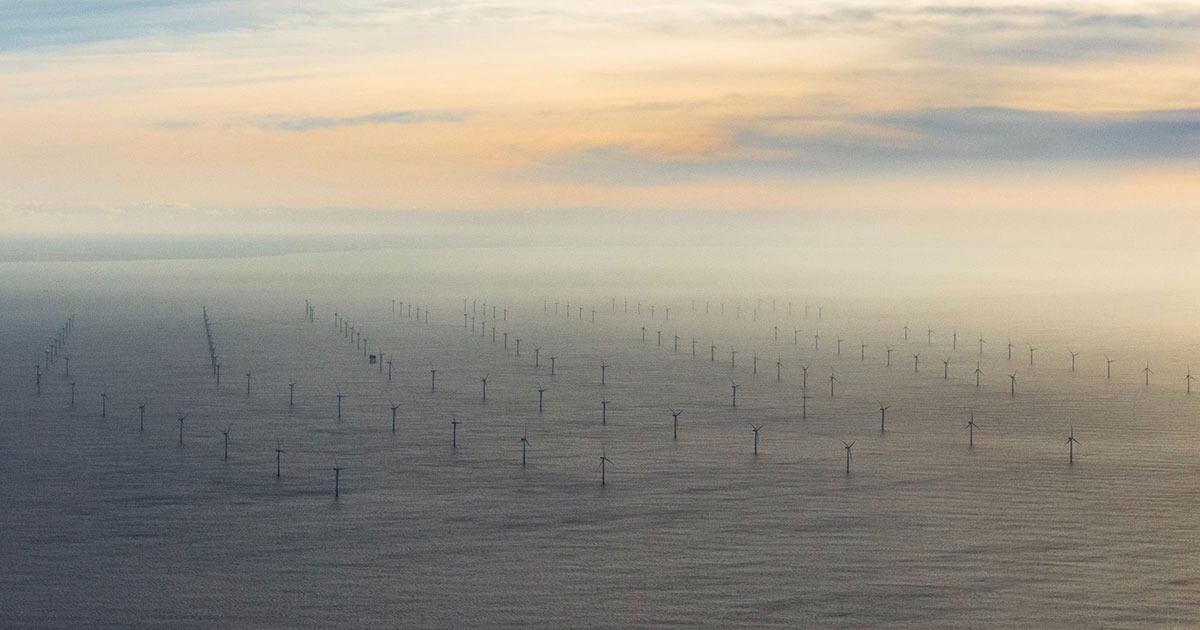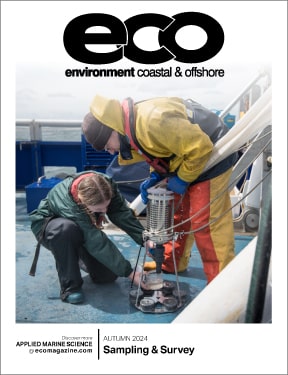The UK is committed to increasing its offshore renewable capacity significantly by 2030, and beyond. However, scientists currently have a poor understanding of the full socio-economic implications and conflicting pressures on marine space of the rapid expansion of offshore wind farms.
As such, scientists at PML recently launched a survey to capture responses from those in the industry (deadline January 21st).
So far more than half of those surveyed have cited a negative outcome on catches and profitability. Our Dr. Claire Szostek—project lead—describes some of the initial results from the survey and encourages further feedback from any commercial fishers who have been impacted or think they will be impacted in the future by the development of offshore wind farms.
“We would like to thank all the fishermen who have already completed our survey, while still encouraging any other fishers to do so. Our aim is to gain a better understanding of the impacts of offshore wind farms on commercial fishing around the UK, and how those impacts vary by size of vessel, gear type and location.”
“So far responses have come from fishermen all around the UK, on vessels ranging from 6-42 m in length using multiple types of trawls, dredges, creels, pots, jigging machines, hand lines, trammel and gill nets. Half of respondents so far fish within 6 NM and three-quarters fish >12 NM from shore.”
“80% of the 43 wind farms that are currently operational or under construction are viewed as impacting fishing activity. The majority of fishers have had to use different fishing grounds due to wind farms, with a few choosing to change gear and one fisher leaving the industry as a result. So far, 57% of respondents have cited a negative outcome on catches and profitability, and just one person has experienced a positive outcome on catches and profitability.”
“Initial results indicate a significant increase in spatial competition due to ‘spatial squeeze’ from wind farms, likely due to the fact that many towed gears are unable to operate safely within turbine arrays and are therefore displaced to other grounds. Knock-on effects of this are having to steam further from home to fish as a result, with an impact on operating costs. Most fishermen state they have experienced financial and safety issues stemming from the construction and/or operation of offshore wind farms. There may be some benefits for pot fishermen, as one person commented that the lobster fishing opportunities increased around turbines. This is currently being investigated by researchers at Aberystwyth University.”
“Of the proposed UK offshore wind farms, all are expected to impact fishermen in the future, according to survey responses so far. More than half of respondents would consider leaving the industry as a result of the new developments, with others using different fishing grounds, or potentially changing gear or taking up other employment to supplement income. Spatial competition, fisher safety, catches and profitability will all likely be impacted.”
“Additional concerns highlighted by respondents include, seafloor cables, decommissioning, damage to the seabed, particular impacts on inshore fishermen, disproportionate coverage of scallop and whelk fishing grounds, impacts on commercial vessel traffic patterns, electromagnetic effects from cables and impacts on specific fisheries and/or locations. We will be contacting respondents who indicated they are happy for us to do so for more detail on these issues.”
“The survey will remain open for the next two weeks. If you haven’t already done so, please complete the survey using the link below. Every response is valued.”

